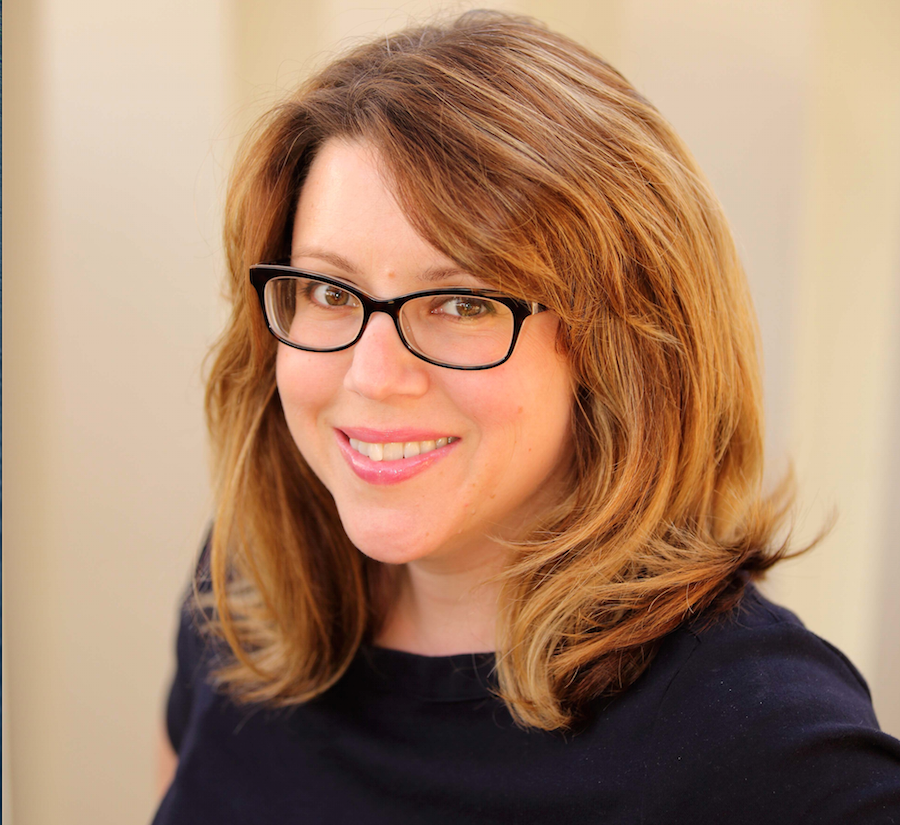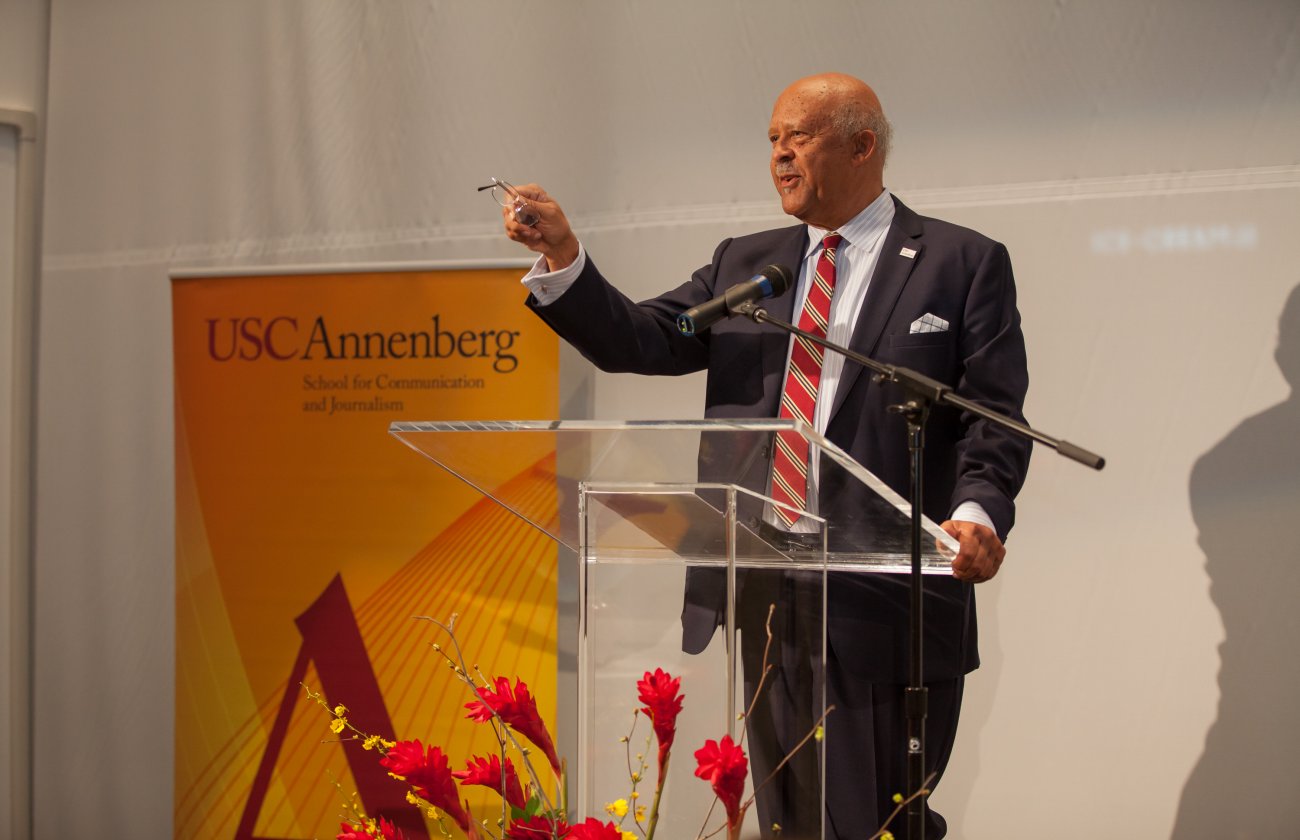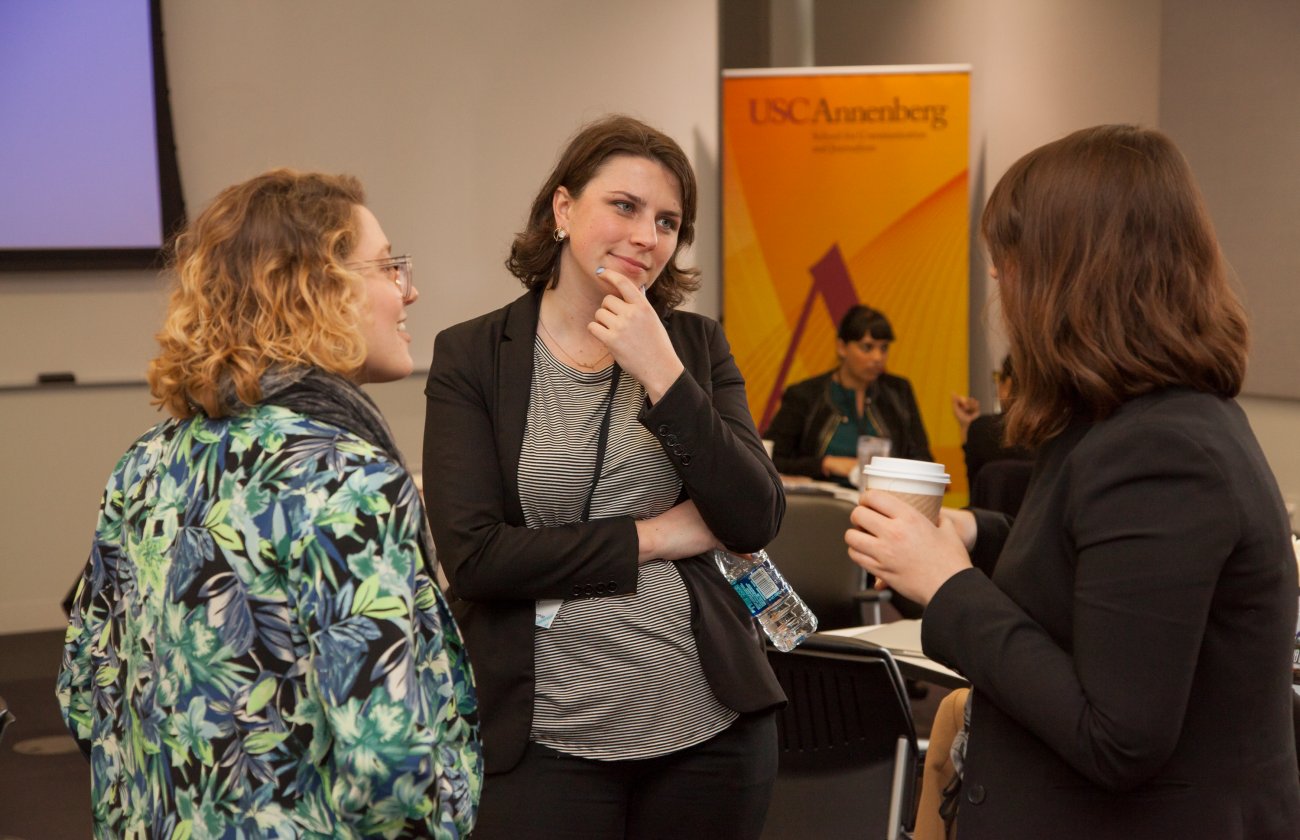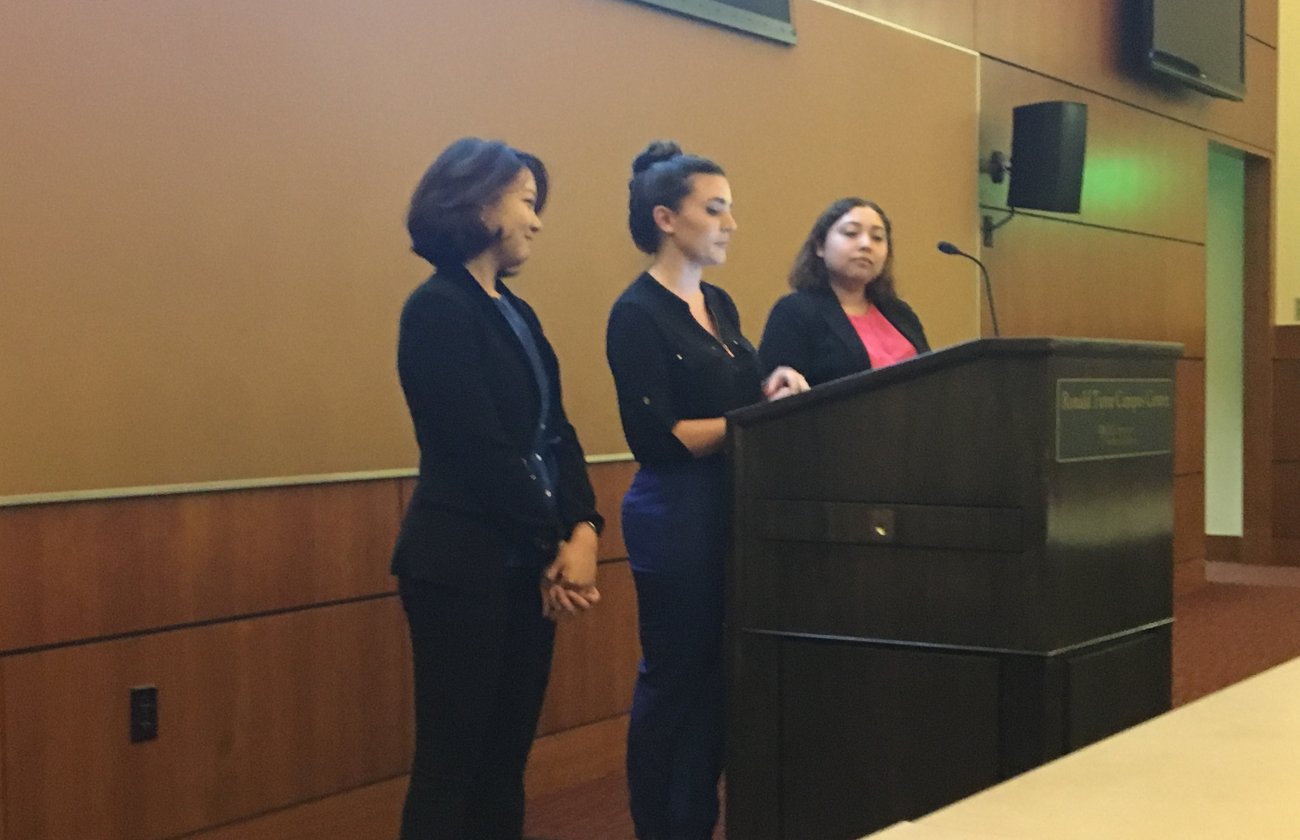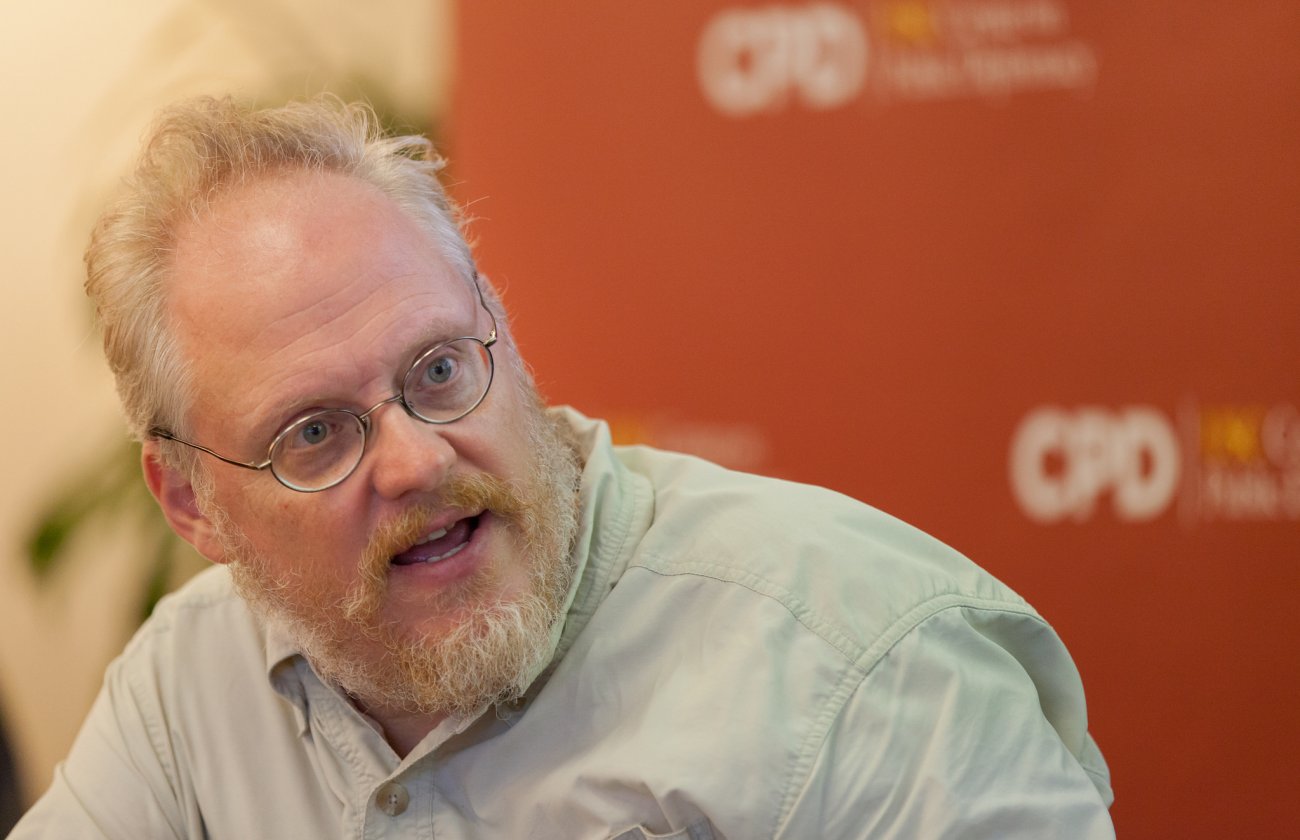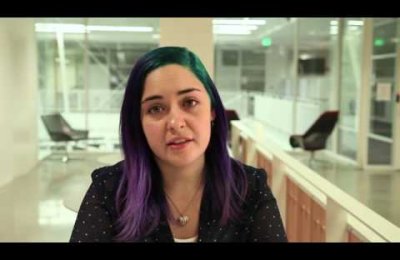Tampa Bay Times reporter Alexandra Zayas, while visiting USC Annenberg this week to accept the 2013 Selden Ring Award for Investigative Reporting, led a lunchtime forum to present her reporting project and offer specific advice and encouragement to student journalists.
The three-part series, “In God’s Name,” took a year to investigate and revealed ongoing abuse at children’s homes, which are allowed to operate unlicensed and unregulated by any government agency in Florida if they claim a religious affiliation. To report the story, Zayas used public records, found and interviewed dozens who attended the homes and their families – and gained access to the facilities, alongside Times photographer Kathleen Flynn.
The judging panel for the $35,000 annual award, presented for the past 24 years by USC Annenberg’s School of Journalism, hailed the “doggedness” Zayas showed in reporting the story: “The series documents Florida's utter abdication of regulation of these homes, and shows how families were misled in entrusting their sons and daughters to religious-based camps with no accountability to anyone. The story was well-organized and its multimedia presentation compelling and powerful.”
The project includes video interviews, footage shot inside the homes and searchable list of homes with substantiated abuse cases.
In the forum on April 11, Zayas explained how the story started. The seed, she said, was an email in August 2011 from someone whose friend had a family member inside a “boot camp”-style home in the Florida Panhandle. After meeting with the woman, Zayas quickly found several anonymous stories on online forums and message boards accusing the home of excessive discipline and of forcing kids to undergo excessive exercise. She put that together with a search of Google and news archives to find several scattered stories over the years of sex abuse allegations, accounts of children kept in isolation and even a survivors network for former students of one home.
Meanwhile, she figured out that the only agency regulating self-proclaimed religious children’s homes in Florida is a nonprofit made up of people who run the homes – a group that is regulating itself. Group homes in general have to be licensed, but this agency, called Florida Association of Christian Child Caring Agencies, teamed up with a legislator in 1984 to get an exemption passed for homes that claim they’re Christian-affiliated. So instead of being overseen by the government, these homes are overseen by FACCCA.
“It’s a self-regulating, private group that allows corporal punishment. Another thing I found out was that no one had ever taken a thorough look at them,” Zayas said. “All of this was a green light telling me to keep looking at FACCCA.”
Since the homes are private and located mostly in rural, isolated areas, Florida’s famously open laws regarding public records laws weren’t a silver bullet. But Zayas was able to get one-line summaries of each abuse allegation from the state Department of Children and Families. She also went to each law enforcement agency whose jurisdiction included one of the homes, and asked them for every interaction they’d had with the facilities. She found 165 allegations of abuse and neglect over the past decade.
Zayas also searched lawsuits filed by former students and their families.
She ended up with stories – corroborated by witnesses –of students being forced to stand until they urinated, confined in isolation for days, exercised until they vomited, being bruised, bloodied, shackled, pinned down and choked into unconsciousness.
At the forum, Zayas showed students and faculty clips of interviews she conducted inside the facilities with the pastors, children and a self-appointed “colonel” of one military-style school. She and Flynn traveled around the state, gaining access to the homes to see operations for themselves and get context for the stories of emotional and physical abuse they were hearing.
Gaining access, Zayas said, was probably the most important part of the investigation. Talking to those who run the homes, hearing their side and seeing how they operate made it a much stronger account, she said.
“Being able to go there and experience it for myself allowed us to tell a much more fair story,” Zayas said.
She also explained how she got into the homes. At first, she said, she failed. Informal emails that breezily asked for a visit were ignored.
“By August, I was able to send an email that looked like this: ‘I’ve spoken to ten former students who attended the school while you served as its leader, eight of whom were there in the last two years. Each one described your system of discipline and control as one in which girls tackle, restrain, supervise and discipline other girls.’” Soon after, Zayas said, “The preacher let us in.”
That school, Lighthouse of Northwest Florida, closed soon after the story was published. Zayas also found that the state of Florida was sending foster kids to unlicensed homes, which is illegal. DCF pulled those children out after the stories ran.
Seeing inside the homes also brought home how these children were affected by the abuse, she said. At one home where children were forced to eat “stuff” – punishment food that consists of bowls of vegetables swimming in vinegar – Zayas ate a bowl herself. Afterward, she suffered a stomach ache that lasted three days.
Besides outlining for her audience exactly how she reported the story, Zayas offered several tips for young journalists embarking on an enterprise story:
- Keeping your editor in the loop will keep them interested and give you precious time for reporting.
- Write from the very beginning of the reporting process. Especially when working with a lot of documents and interviews, it’s important to document your findings. “From that very first memo I wrote to my boss, I gave him weekly memos… Writing from the beginning is such a great way to organize your thoughts and digest all of the massive amounts of information you’re getting.”
- Stay organized. With every interview, Zayas condensed the information to a paragraph and gave the synopsis to her editor, who was able to look at what she was gathering with a critical eye. Organization time is not wasted time.
- List your findings early. “It’s kind of like being able to see a Polaroid picture as it’s developing. You get all of the findings, and they start getting sharper and sharper.”
- Don’t settle for low hanging fruit. Zayas recalled that she wanted to publish several accounts she’d gathered from a decade ago, but her editor pushed her to find more current information, which made the story more powerful.
- Don’t make assumptions about access. “I thought no one in their right mind would let me into these places, and they did.”
